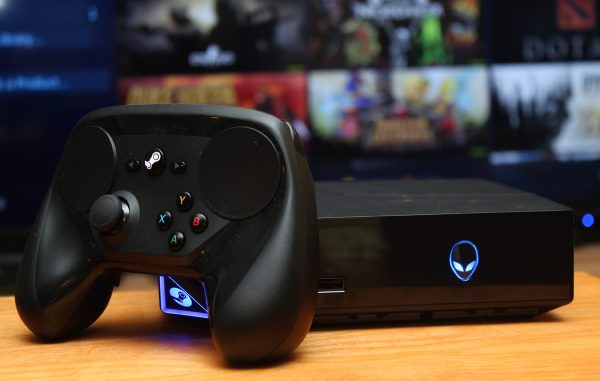
In theory, a video game console/PC hybrid is a fantastic idea. A device that combines the best of video game consoles and gaming computers? What could go wrong?
Well, if recent history is any indication, quite a lot.
Understanding the problem with PC/console hybrids can be best achieved by looking at the most famous attempt at that concept, the Steam Machines. Steam Machine is a term used to describe a series of pre-built gaming PC designed to operate largely like gaming consoles. They boasted the power and massive gaming library of higher-end PCs but required none of the hassles that typically accompanies such builds. You just hooked them up to your TV, turned them on, and started playing games. They seemed like a good idea.
However, that concept turned out to be a disaster. The biggest problem with Steam Machines is that they ran off a specialty operating system – SteamOS – that is largely limited to video games. Even then, there aren’t a lot of developers out there who make their games compatible with SteamOS. That meant that Steam Machine owners were stuck with a fairly meager library of games. Their pricing was also way off. Steam Machines in console price range – about $400 – weren’t really all that much more powerful than a console. Higher end models – which could reach $1000+ – were so expensive that most people were just better off buying a computer.
The failures of the Steam Machine line – and other devices like them – have made it easy to dismiss the entire concept of a gaming PC that functions largely like a console. The shame of that is that the concept itself is as appealing as ever. More importantly, it’s an idea that just might be necessary for the growth of the gaming industry.
Here’s the thing: the divide that once separated gaming consoles and gaming PCs has gone from being a necessity to an annoyance. For quite some time, modern gaming consoles have been designed to be more like PCs. They even make you perform those annoying software updates that console gamers used to make fun of PC gamers over. PC gamers, meanwhile, have been enjoying an influx of titles previously limited to consoles…that still often require console controls and feature limited PC-specific customization options.
The closer those two sides come to being one entity in different forms, the more we wish that someone would crack the puzzle and just deliver a device that cuts through the noise and just gives us the best of both worlds.
It comes down to whether or not someone is able to find that magic price point. If someone can develop a machine that distills the full PC gaming experience to its purest form and put in a console set-up that doesn’t give traditional console gamers a real sense of sticker shock, then that person might just deliver the undisputed most appealing gaming device on the market.
We hope that day comes, but sadly, it’s beginning to look more and more like one of those great ideas that just never seems to work out.











